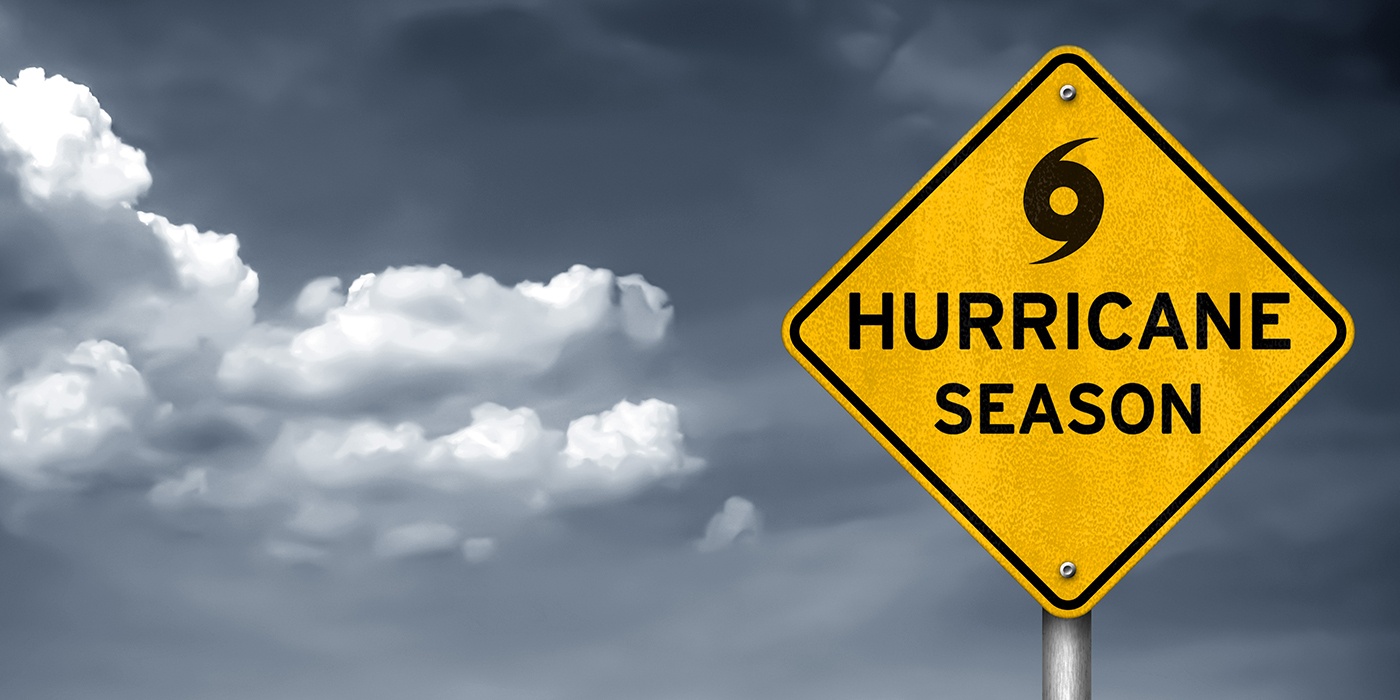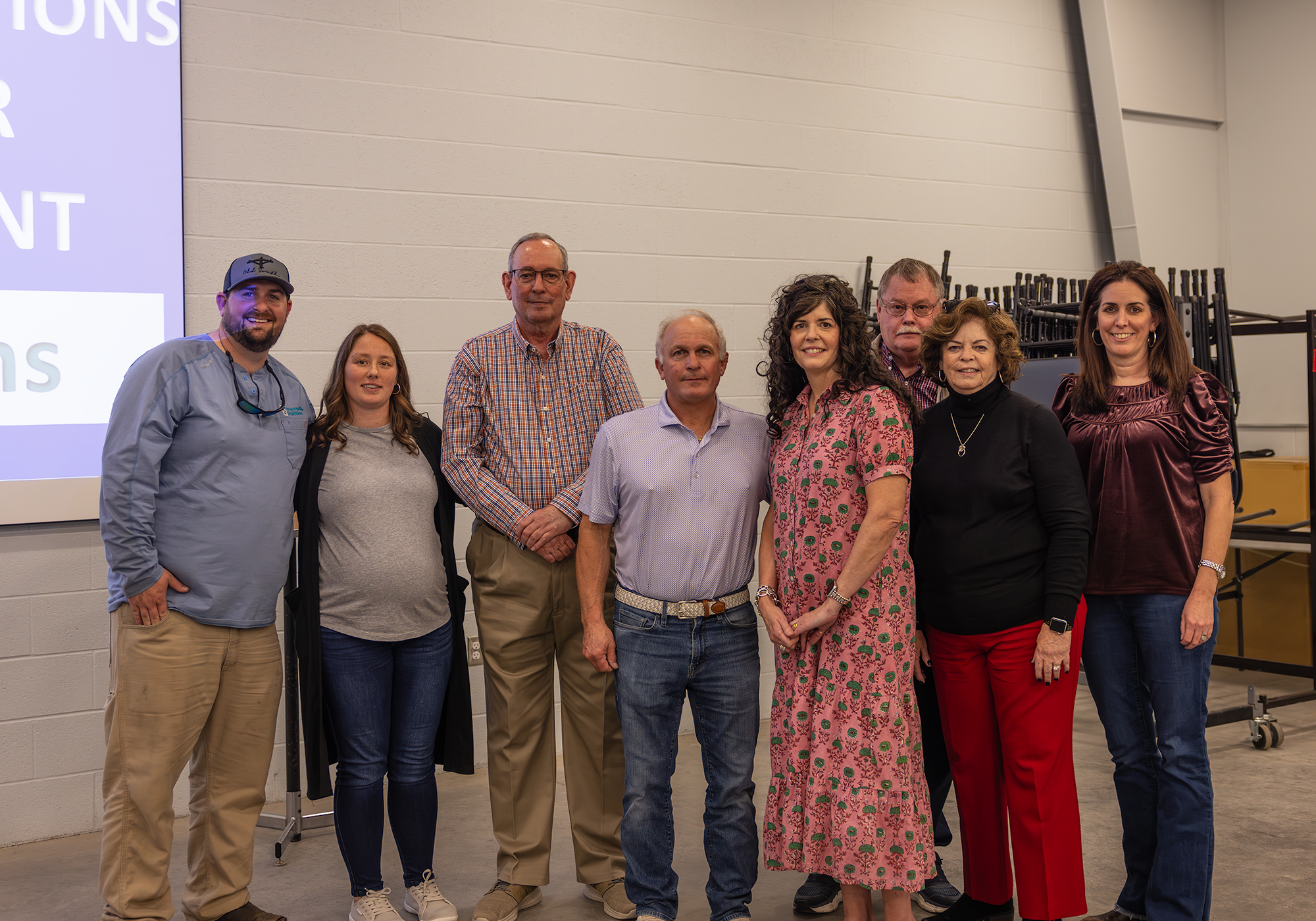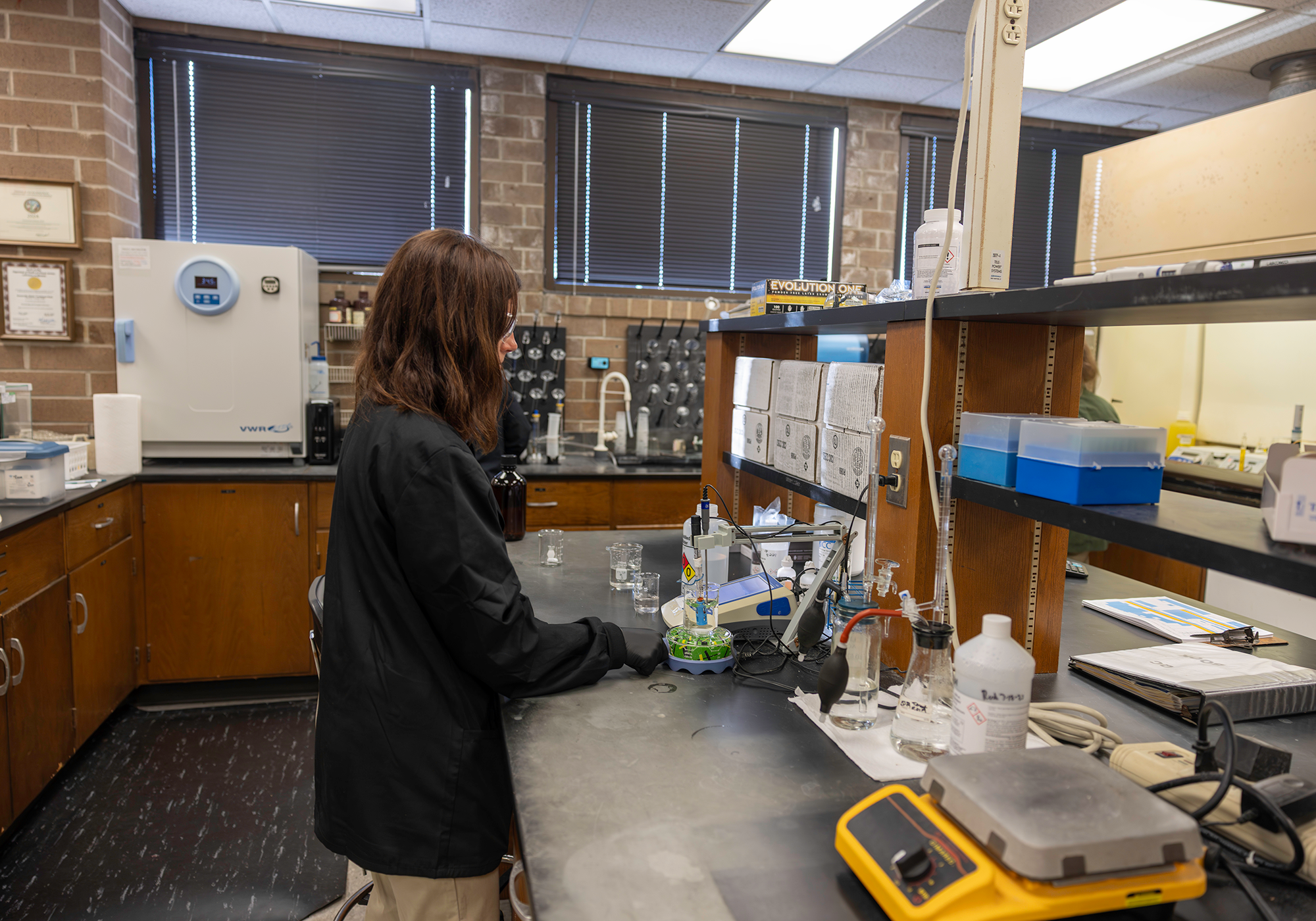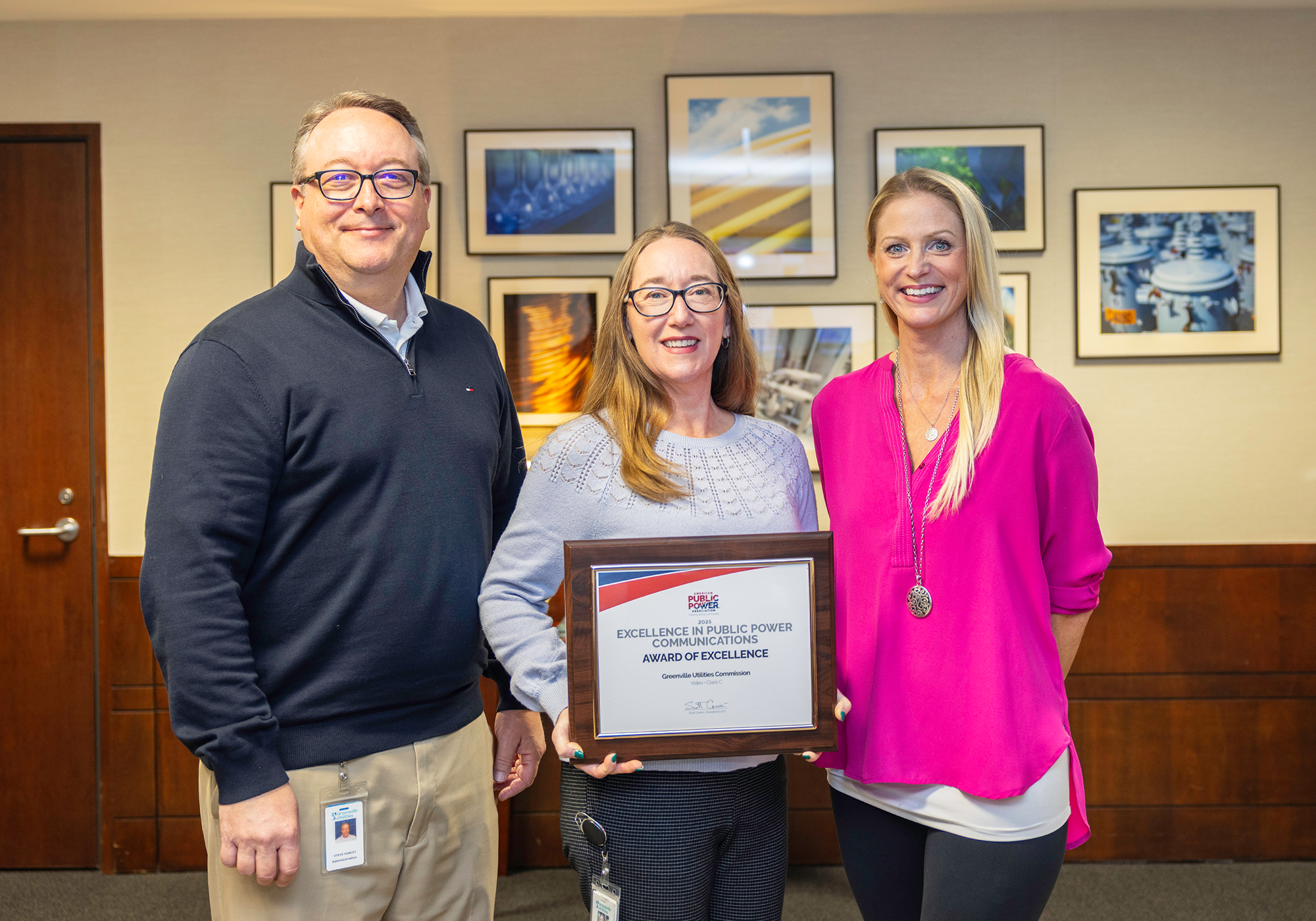
Hurricane season began June 1st and runs through November 30th. The National Oceanic and Atmospheric Administration’s (NOAA’s) forecasters are calling for an “above-normal” year, with 13 to 19 named storms (winds of 39 mph or higher). Of those, six to ten could become hurricanes (winds of 74 mph or higher), with three to six of those becoming major hurricanes (category 3, 4 or 5; with winds of 111 mph or higher).
We know that no matter what blows our way, preparing for all emergencies and weather events is a year-round activity for GUC. Employees are consistently doing what they can to ensure our systems are in the best condition possible and that we have an adequate supply of materials to handle most situations, at any given time.
Electric
GUC’s outage management system, called Responder, is a valuable asset during service interruptions. Responder simultaneously links to our Emergency Hotline, Geographic Information System (GIS), Supervisory Control and Data Acquisition (SCADA), and Customer Care & Billing (CC&B). By tapping into multiple tools at once, Responder can automatically group together related customer calls, which makes managing the outages much easier.
One of the key benefits for customers is better communication. Through an outage map on our website, customers can see where we have outages and even report their outages with just a few simple steps. Customers can also call to report outages using our Emergency Hotline, including a call-back option for updates.
Another responsibility of the Electric Department is line clearing, an ongoing program to help minimize service interruptions. One thing that makes Pitt County a beautiful place to live is our trees. Without proper management, trees have the potential to cause serious problems for our electric distribution system. Preventing those problems is why GUC has a year-round line clearing program that covers our entire distribution system. Line Clearing Crews work daily on trimming branches and trees that threaten overhead power lines. Their work is crucial because we cannot prevent strong winds and heavy rains from possibly damaging our trees. What we can do is work hard to prevent as many trees as possible from hitting our power lines, which could potentially cause widespread outages.
Water Resources
Water Resources crews monitor and maintain our distribution system so we can quickly make repairs should the need arise. The systems at the Water Treatment Plant are continuously monitored, and back-up systems are in place so that we’re able to serve our customers no matter what weather situations arise. The Wastewater Treatment Plant also regularly monitors systems so they can function during any type of emergency.
Natural Gas
Similarly, the Gas Department inspects and maintains gas valves and has identified those critical for isolating sections of the system in the event of an emergency. GUC purchases natural gas for its customers. Should this supply be cut off due to an emergency or if transportation became an issue, our Liquefied Natural Gas (LNG) plant has more than a week’s supply of gas in storage.
Stores & Fleet Maintenance
Our warehouse, Stores, keeps enough inventory on hand for crews to have the supplies they need to make emergency repairs. They plan ahead so that once it’s safe for workers to get out in the field to restore service, they have what is needed to get the job done. Speaking of getting out into the field, Fleet Maintenance keeps our vehicles and equipment in tip-top shape to make sure they are always ready to roll.
Customer Communications
Communicating effectively with our customers is crucial during emergencies. Over the years, we’ve used experience from past weather events to enhance the way we communicate to our customers during emergencies.
Our Emergency Hotline 855-SOS-2GUC (1-855-767-2482) is dedicated to helping us handle a large number of calls at one time. It’s available 24/7 and is a fast way customers can report an outage, gas leak, water leak, or any other utility emergency.
Another option in our communication tool box is CodeRed, a service that allows us to send personalized messages to customers and employees about emergencies. For example, that’s how we call inform employees of office closures or delays.
GUC’s weather channel, GUCtv (cable channel 35), is yet another way we share information. Our partnership with WITN allows us to provide not only weather information, but also videos and slides of GUC-specific information. We also share information online through our website and social media outlets (Twitter, Facebook, and Instagram). And with social media, customers have another avenue to communicate with us.
Storm Response During COVID-19 Pandemic
In the event our service area is affected by a storm this year, some aspects of our storm response operations will be different in an effort to mitigate the spread of coronavirus and other infectious diseases. We will continue to follow the pandemic response plan throughout hurricane season (staggered work schedules, no large gatherings, and other measures as identified in the plan). In addition, we could see the following changes to storm response this year.
Logistics
Plans are in place for plated, meal take-out to operating crews in the field. For meal deliveries, proper precautions such as masks and gloves will be utilized. Totes will be properly sanitized prior to and after each delivery and sealed prior to leaving operations to avoid possible contamination. Crew leaders will be responsible for distributing the meals to their crews. Totes will be delivered by a Spotter familiar with the area the crews are in to avoid any delay in the delivery. Totes and coolers will be numbered and assigned to every crew. Spotters will also be responsible for collecting and dropping off coolers at the end of the day so they can be sanitized and repacked for the next day.
For on-site employees, WWTP, WTP, LNG and Main Office, meals will also be plated. Social distancing guidelines and procedures will be in place throughout the facilities; including, but not limited to, hand washing/sanitizing stations, maintaining six feet of distance between each employee, cleaning up our own areas after eating, and having storm team members sanitize the area, including chairs after each use.
Stores is working closely with the Safety and Purchasing Offices to procure and provide appropriate personal protective equipment and supplies to keep our employees safe as they perform their normal work duties and serve as part of the storm response team during the COVID-19 pandemic. Stores will also work with the Logistics Team on delivering materials to work sites related to electric outages. This will allow crews to keep working rather than sending someone in for supplies.
Mutual Aid
As a community-owned utility, GUC is part of a network of municipal systems that have mutual aid agreements designed to offer assistance during urgent situations. GUC has been on both the receiving and giving end of assistance on countless occasions.
This year, GUC will limit out-of-town mutual aid travel to North Carolina or as decided by the General Manager/CEO on a case-by-case basis. The Electric Department has arranged for six additional contract crews to be available to support GUC’s storm response on our system in anticipation that mutual aid from other cities will be limited.
Customer Relations
The biggest change to Customer Relation’s storm response plan due to the pandemic is team placement. They will be spreading Customer Service Representatives (CSR) out in the Main Office to comply with social distancing measures.
They will also start training all CSRs on the very popular chat feature of our GUC website. During normal operating hours, only one or two CSRs are in charge of the chat function. Since we incorporated the new chat tool almost two years ago, it’s become clear that all CSRs need to be chat agents during storms, when that tool is used more than the phone to communicate with customers.
Please remember that Safety and Risk Management will continue to monitor procedures and make safety recommendations as needed to mitigate exposure during storm response, so these plans could change.






